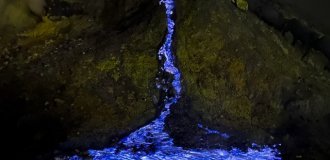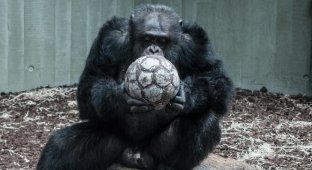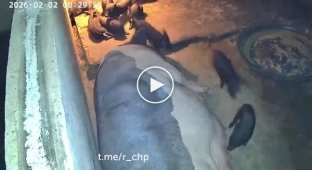Chimpanzees are capable of human speech, scientists say (7 photos + 1 video)
Chimpanzees are biologically capable of saying simple human-like words like “mama,” according to a new study. Scientists analyzed old videos of chimps raised in conditions that are now considered unethical and found that these apes can produce sounds similar to human speech. 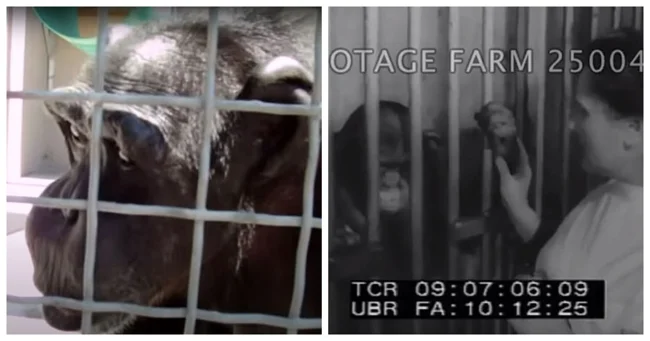
Many scientists believe that the only thing that sets humans apart from our primate relatives is our unique ability to speak. But a new study suggests that Planet of the Apes may be just around the corner: scientists say chimpanzees can talk after all. An international team of scientists has studied video footage of chimpanzees raised by humans in conditions that are now considered unethical.
Analysis of this footage, taken in 1962, has shown that chimpanzees are capable of saying simple human words like “mama.” The discovery could upend long-held assumptions about ape psychology and show that the neural “circuitry” for language evolved earlier than previously thought.
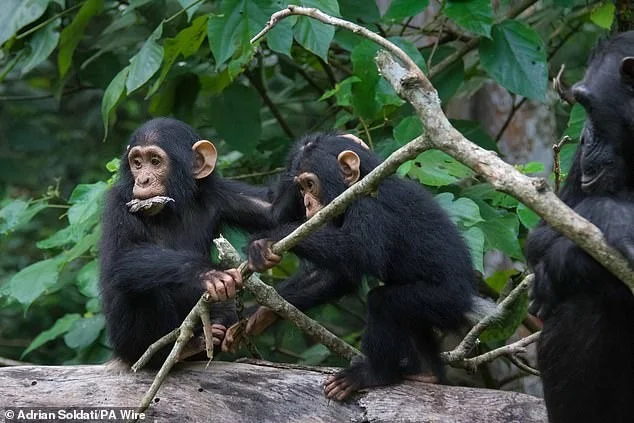
The question of whether apes are capable of speech is a topic that has divided generations of scientists. Perhaps because of the importance of language in our understanding of what makes humans unique, each side of the debate has strong supporters. Beginning in the 1900s, this debate resulted in a series of highly unethical experiments in which humans attempted to raise chimpanzees as humans.
For example, researchers cite the case of Keith and Catherine Hayes, who adopted a chimpanzee in 1947. The couple later claimed that the chimp, whom they named Vicky, learned simple words like “mama,” “cup,” and “up.” However, there is little direct evidence from these early experiments, and the trauma of separating chimpanzees from their families has meant that the results have been largely dismissed.
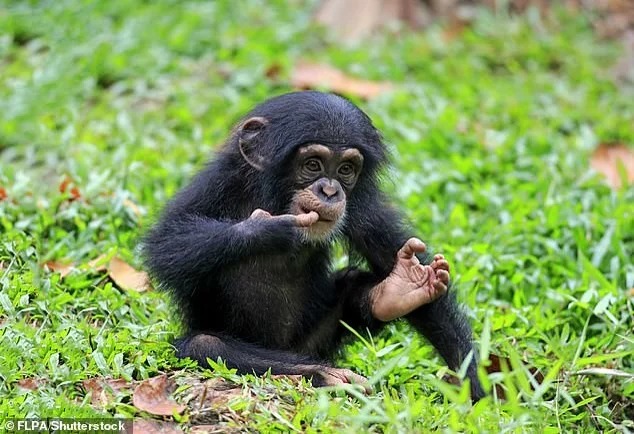
In their paper, published in the journal Scientific Reports, the researchers argue that insufficient analysis of these old cases has led to the belief that chimpanzees are incapable of speech.
"There has been an idea floating around in neuroscience for a few years that the cerebral cortex of chimpanzees may be holding them back," said lead author Axel Ekström of KTH Royal Institute of Technology in Sweden. "The basic idea is that in humans there is an overlap between the area of the brain that controls jaw movement and the area that controls the vocal apparatus. And this overlap allows for the syllabic speech we see in infants ('ba-ba-ba') that evolves into adult speech as we develop."
The so-called 'Kuipers-Jurgens hypothesis' suggests that because chimpanzees lack this overlap, they simply cannot produce speech like humans.
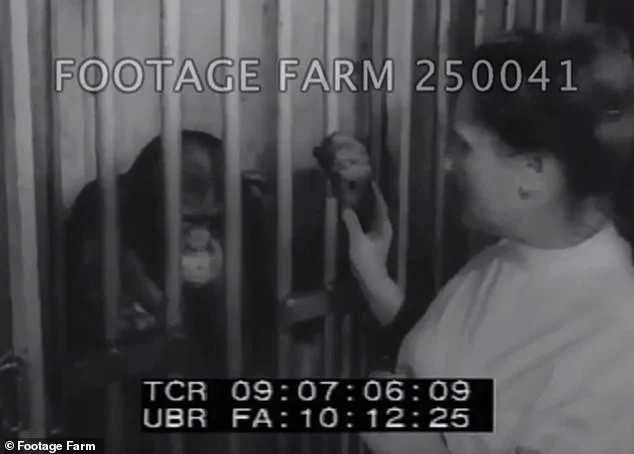
By reviewing old videos of chimpanzees raised in human environments, Dr. Ekström believes he and his colleagues have found compelling evidence to refute this idea. Specifically, the researchers found two videos of chimpanzees that appeared to be able to say 'mama'.
The first video shows a chimpanzee named Johnny who lived at the Suncoast Primate Sanctuary in Palm Harbor, Florida. The caption on the video reads, "Johnny called everyone 'Mom.' He was a wonderful animal and lived to be 63 years old."
The second video shows a clip from a film called "Now Listen! The Italians Present the Talking Chimpanzee," which was released in 1962 as part of a Universal Studios newsreel series. In the clip, a chimpanzee named Renata is being stroked on the chin by her trainer and says something that sounds like "Mom."
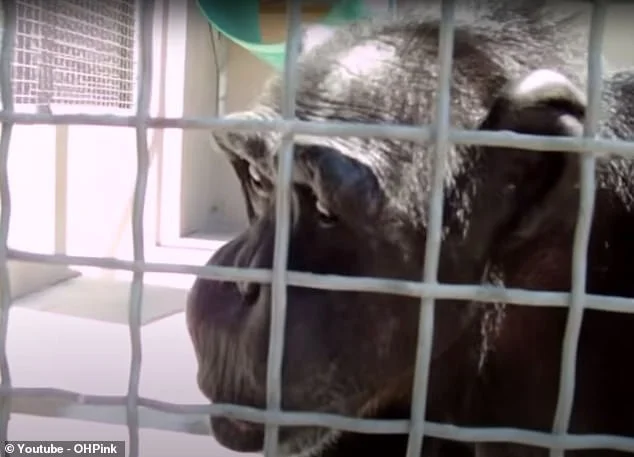
To test how close these sounds were to human words, the researchers conducted an online experiment.
Recordings of chimpanzees were mixed with recordings of people diagnosed with Parkinson's disease. Participants were told that all recordings were made by people diagnosed with speech pathologies and were asked to phonetically write down the sounds they heard.
The researchers found that most participants agreed that Johnny and Renata were saying the word "mama." Although Renata's vocalizations were generally clearer, many participants still recorded Johnny as saying a sound containing the "a" sound.
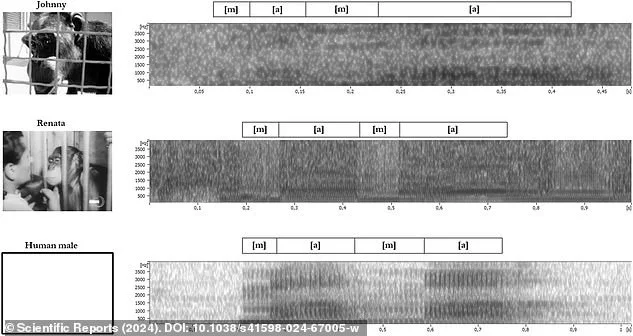
The researchers say this is clear evidence that chimps do indeed have the jaw-vocal connection needed to produce syllabic speech with consonants and vowels.
"This suggests that either the cortical overlap is not critical, or that chimps have it too," Ekström says.
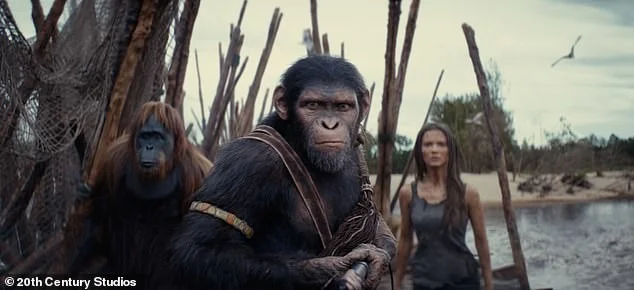
However, the researchers also note that we are unlikely to get talking chimps like the ones in Planet of the Apes. Even if chimps have the brains needed to learn new sounds, their tongues are long and flat, making it difficult to transition between speech sounds.
Ekström says his work shows that chimpanzees have the ability to "vocal learn." However, he adds: "In our case, there is no evidence that the chimpanzees understood the meaning of the word 'mama.' So, as far as we know, they did not ask for 'mama' or call someone 'mama.' These were sounds that carry deep symbolic meaning for us, but it seems that the chimpanzees did not realize it."
